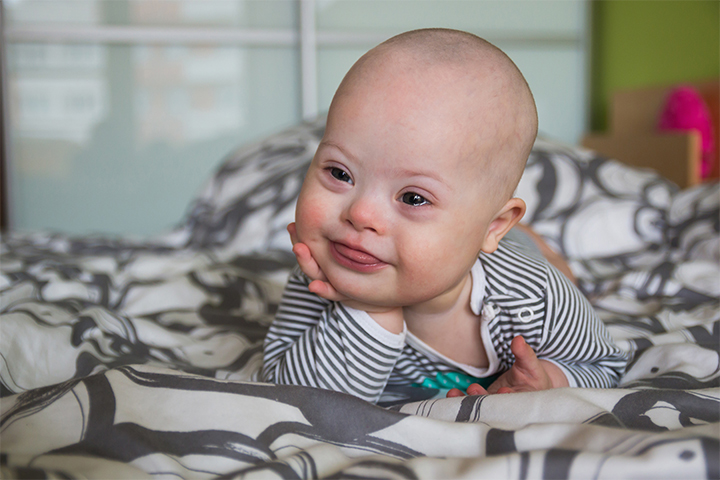
Image: Shutterstock
The first two years of your baby’s life are the most exciting. Not only is it wonderful to see your newborn grow and explore the world around them, but watching them reach important milestones in terms of development can also be deeply satisfying. Every parent is overjoyed when their little one starts to take their first steps. This opens up a whole new mode of interacting with them and their environment. Most babies start to walk when they are anywhere between 11 to 16 months old.
Every child’s development is unique, and some may begin walking as late as 18 months old. It’s important to understand that this is generally not a cause for concern, as most walking challenges tend to resolve during a toddler’s second year of life. Soon enough, they’ll be sprinting around and nearly impossible to catch. However, if your little one struggles to stand, support themselves, or walk by the age of 18 months, it’s advisable to seek the attention of a pediatrician. Below, we’ve outlined a few common conditions that a pediatrician may explore to assess the reasons behind your baby’s delayed walking.
1. Neurological Disorders
Image: Shutterstock
Certain neurological disorders can lead to a delay in your child’s walking development. One such disorder is Cerebral Palsy, which affects motor function, making it challenging for your child to move or control their movements (1). Typically, this disorder manifests in children at an early age, often before their first birthday. Another neurological disorder that can impact walking is Down’s syndrome. Individuals with Down’s syndrome are born with an extra chromosome, resulting in changes in both physical and mental development (2). These neurological disorders can indeed delay the onset of walking. Identifying specific cues and recognizing these disorders early on can be crucial in addressing the underlying issues your baby might face and commencing early treatment.
2. Muscular Dystrophy Or Muscular Issues
This is a hereditary neuromuscular disease and is progressive in nature. Muscular Dystrophy is also one of the most common causes of delayed walking in children. However, it does not need immediate medical attention. It usually just causes some weakness in the muscles which rectifies itself as your child continues to grow and develop (3). The more they exercise these muscles, the closer they are to putting one foot in front of the other. However, spinal muscular atrophy is something that needs to be medically addressed immediately. This is a genetic condition where the nerves are attacked and interfere with the baby’s control of the body (4).
3. Vitamin D Deficiency
Image: Shutterstock
Vitamin D is extremely important for a growing baby as it affects their ability to grow physically. A lack of vitamin D means that the baby will experience fatigue, be irritable, not reach the height they are meant to be and may not start walking as a result. vitamin D plays an important role in the bone development of babies (5). So, if you suspect that your child isn’t getting enough of this precious vitamin, ask your doctor to start writing up supplements they can take or switch to foods that are rich in vitamin D so that they can develop well and walk soon.
4. Motor Skills And Walking
Image: Shutterstock
Some kids just have delayed motor skills which means that they start walking a lot later than the average kid. There could be other factors that also cause a delay in reaching this milestone, like their personality. Some kids would rather just wait until they feel confident and strong enough to walk without stumbling. Whereas others are okay with being a little unsure and falling more often when learning to walk correctly. Hypotonia may also be the reason behind your child’s inability or hesitation to walk. This is a condition where people have less control over their bodies. It could be caused by brain damage, muscular disorders, the nerves that supply the muscles, or an infection (6). Your child might also just have a learning disability that slows down their ability to walk. Seeking out a physical therapist can help your child overcome these obstacles and help them walk soon.
5. Hypothyroidism
This is a condition that is triggered by an underactive thyroid. Poor thyroid function may lead to poor muscle tone, weak musculature, which in turn delays walking (7).
If your little one seems like they might have any of these conditions, they must be taken to the doctor right away. The sooner they receive proper treatment, the better their chances of walking soon. So, make sure to keep an eye on your baby as you encourage them to take their first step!















